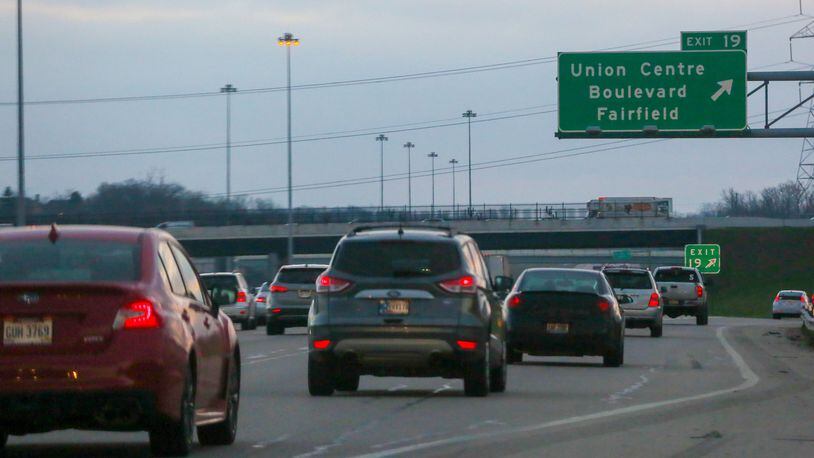RELATED: Butler County officials say administrator will be sorely missed
“Nobody wants to go in when there is no money and you’ve got to lay people off and it’s a fight and it’s just terrible,” Commissioner Don Dixon said. “But when the finances are good then it makes it (the job) attractive to a lot more people. Nobody wants to be the person who has to right the ship.”
In the meantime, David Fehr — who is also the county’s development director — is serving as acting administrator, and he has some key priorities in mind. That includes purchasing new voting equipment, whichare not in the 2019 budget yet. Officials say they want them installed and operational by the November election.
The county is receiving $3.2 million from the state to help pay for the aging equipment.. Election officials revealed recently prices from two of the five state-approved vendors are $5.1 million and $5.7 million, for electronic voting machines, which is similar to the voting machines used now. The paper ballot option is $2.3 million and $2.7 million.
“It’s definitely an urgent matter, there is state money so we want to take advantage of that to ease the burden on the county,” said Butler County Board of Elections Deputy Director Eric Corbin.
“But there’s a lot of avenues we can choose to go down and we’re still working on figuring out which are going to be the best for Butler County.”
Butler County Finance Director Tawana Keels’ reaction when she heard the quotes was “we don’t have $6 million sitting somewhere.”
A more visible challenge this year will impact drivers on the Union Centre Boulevard interchange at Interstate 75 when West Chester Twp. installs the $13 million diverging diamond improvement.
With an estimated 49,000 cars traveling in that area daily, County Engineer Greg Wilkens said officials are still working on a schedule and ways they can keep disruptions to a minimum. Traffic over the bridge will continue flowing throughout the project — he hopes the work can be completed this year — but there will be periodic lane closures. There will be a short time when drivers will only be able to take right turns off the ramps.
MORE: Portman touts Butler County’s effort battling opioid epidemic
The opioid epidemic continues to grip the county, and Scott Rasmus, executive director of the mental health and drug addiction recovery services board, said the board might face financial challenges when the 21st Century CURES Act grant funding expires in April.
The federal grant totalled $1.5 million over two years, and it did multiple things, including:
• Helped pay for things like expansion of addiction treatment services at the county jail
• Increased the number of residential treatment beds to 106 and included education services for families of those in treatment
• Expansion of Medication Assisted Treatment to uninsured and under-insured in Middletown and Hamilton
• Expansion of care coordination for Quick Response Teams across Butler County
• Coordinator support for the re-establishment of Family Treatment Drug Court
If the funding is not renewed, Rasmus said his board will have to make some tough decisions about which programs they can continue to fund. They have earmarked $1.2 million in the board’s Opiate Epidemic Plan in 2019 to deal with these issues.
“These are one-time funds,” Rasmus said of the CURES money. “Meaning it may be a year or two and it may all go away. So the issue is if that $834,000 in programming goes away how are you going to sustain it. So that would be moneys from the Opiate Business Plan to pick up and choose which needs to be extended.”
Cheryl Subler, managing director of policy at the County Commissioners Association of Ohio, said the 88 counties in Ohio have lost $351.4 million in Medicaid managed care sales tax, local government funding and tangible personal property tax.
She said with governor-elect Mike DeWine poised to take office next week, they are encouraged help for counties might be on the way.
“I think the incoming administration has been prioritizing and saying how they want to prioritize kids and families,” Subler said. “That’s fabulous, that’s great news. And then there’s also some who would like to work with local governments to address mandated services and unfunded mandates, to take some pressure off of their general funds.”
Fehr said the county must also deal with trying to restore a $2 million rainy day fund transfer it needed to cut to pass a structurally balanced budget. It will also be working on finding funding for the Ohio 129 and Liberty Way interchange revamp and reviewing leases to see if they can reduce the county’s “footprint” since many offices have downsized and their is underutilized space.
“The county needs to be vigilant in controlling our costs in 2019,” Fehr said. “We don’t know what will happen with the economy at the national level, so we need to be prepared locally if there is a downturn.”
About the Author
